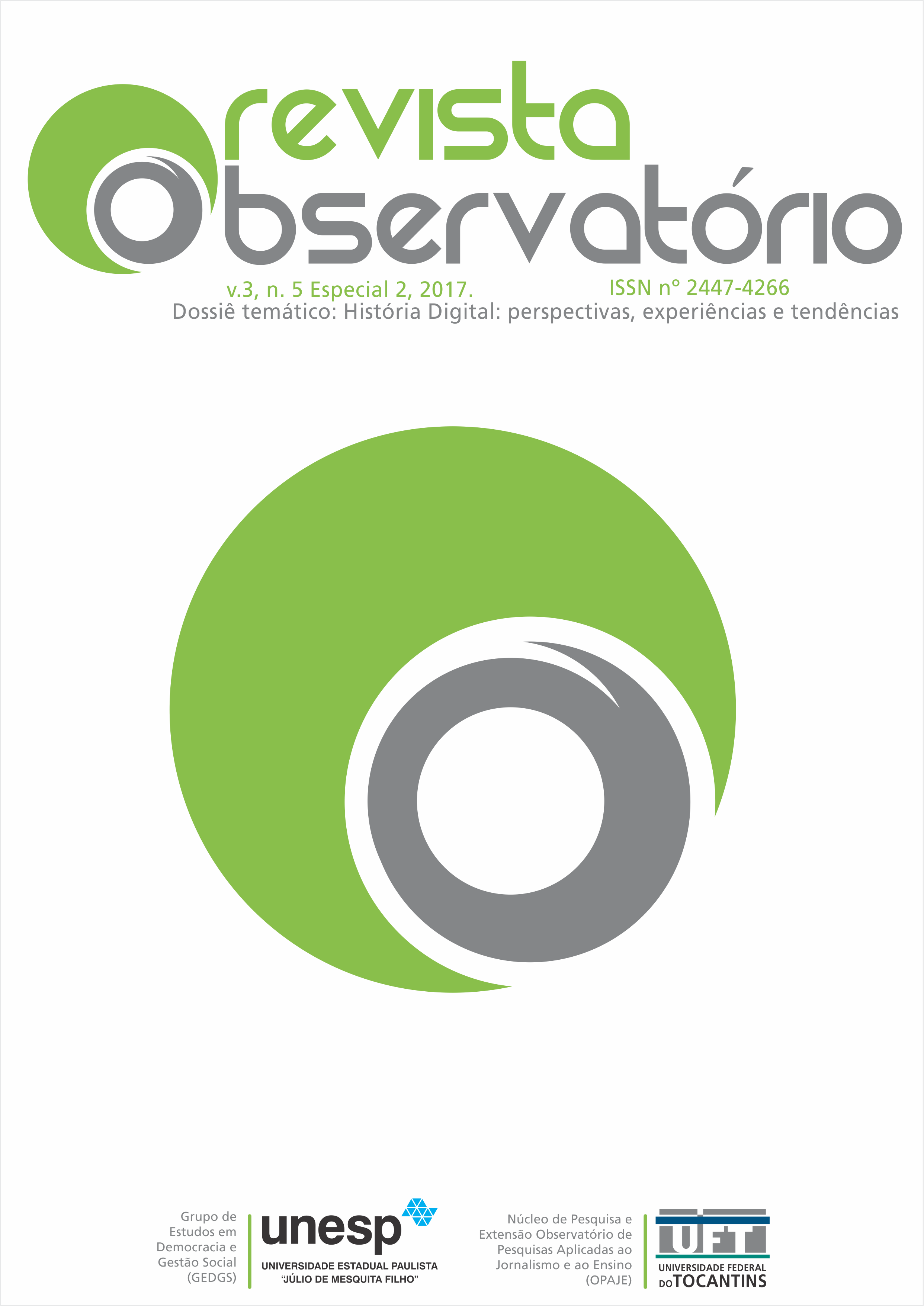MACHO NA RODA: enfrentamento à violência contra a mulher por meio do ciberfeminismo em Belém-PA
DOI:
https://doi.org/10.20873/uft.2447-4266.2017v3n5p357Palavras-chave:
Estudo de caso, Ciberfeminismo, Fatores Inibidores, Vítima, Performances catárticasResumo
O presente artigo traz o recorte de um estudo de caso que teve como objetivo entender qual as motivações que impulsionaram o ciberativismo da página feminista no Facebook Macho na Roda-Belém, página esta que se mostrava como um espaço em que mulheres que foram violentadas de alguma forma por homens se sentissem seguras para relatar, de forma anônima, sobre suas experiências dramáticas, com a finalidade de alertar outras mulheres sobre os riscos que aquele homem representa. Entre os diversos aspectos da página analisados, destacamos neste artigo as motivações e experiências das mulheres que enviaram os relatos anônimos, chamadas de relatoras. A análise das entrevistas com as relatoras se dá essencialmente sob a luz do conceito de fatores inibidores de Montserrat Sargot e das perspectivas das pessoas em condição de vítima reveladas por Howard Zehr.
Downloads
Referências
BERTHO, Helena. Por que a palavra da mulher não tem valor nas delegacias?. AZ Mina. out, 2016. Disponível em: azmina.com.br/2016/10/por-que-a-palavra-da-mulher-nao-tem-valor-nas-delegacias, Acesso em: 14 de dez. de 2016.
CASTELLS, Manuel. Redes de Indignação e Esperança: movimentos sociais na era da internet. Rio de Janeiro: Zahar. 2013.
REZENDE, Renata. A catarse cotidiana: performances dramáticas no Facebook. Culturas Midiáticas. UFPB, nº 13, 2014. Disponível em http://periodicos.ufpb.br/index.php/cm/article/view/24498. Acesso em: 14 de dez. de 2016
SARGOT, Montserrat. Ruta crítica de las mujeres afectadas por la violencia intrafamiliar en américa latina: estudios de caso de diez países. Washington: Organización Panamericana de la Salud. 2000.
ZEHR, Howard. Trocando as Lentes: um foco novo sobre o crime e a justiça. São Paulo: Palas Athena. 2008.
Publicado
Como Citar
Edição
Seção
Licença
[PT] Autores que publicam nesta revista concordam com os seguintes termos:
1. Autores mantém os direitos autorais e concedem à revista, sem pagamento, o direito de primeira publicação, com o trabalho simultaneamente licenciado sob a Creative Commons Attribution License (CC BY-NC 4.0), permitindo o compartilhamento do trabalho com reconhecimento da autoria do trabalho e publicação inicial nesta revista.
Leia todos os termos dos direitos autorais aqui.


